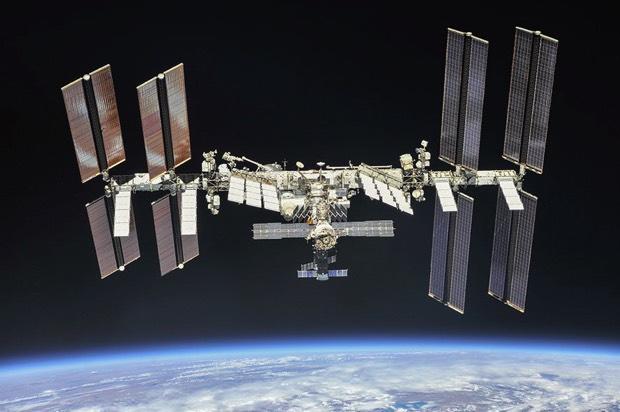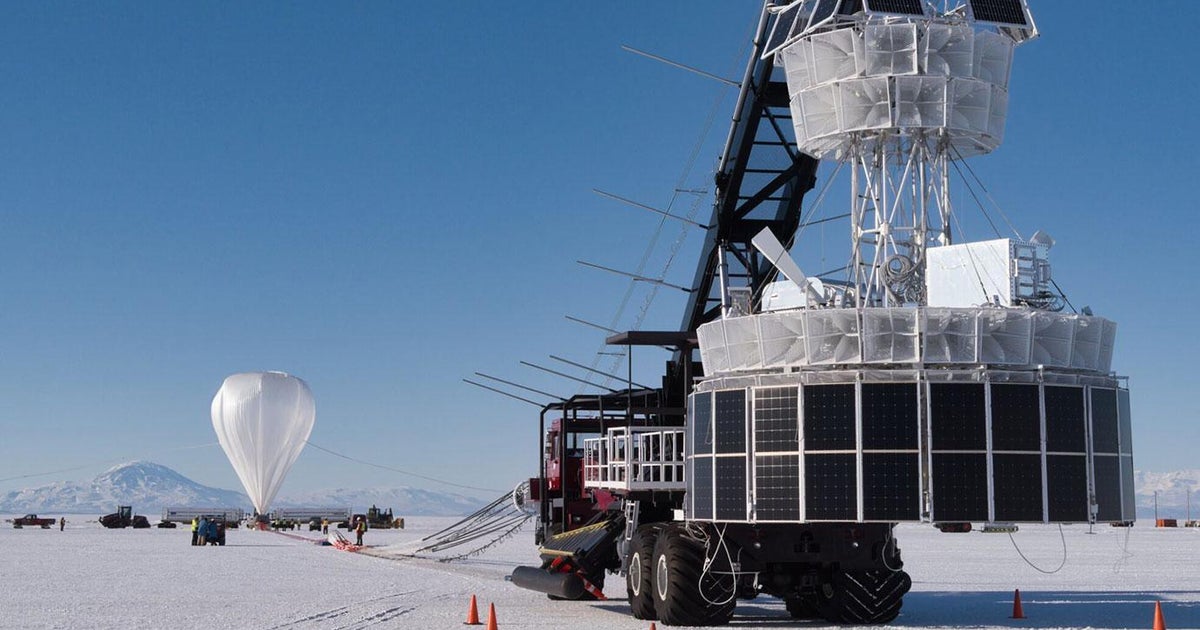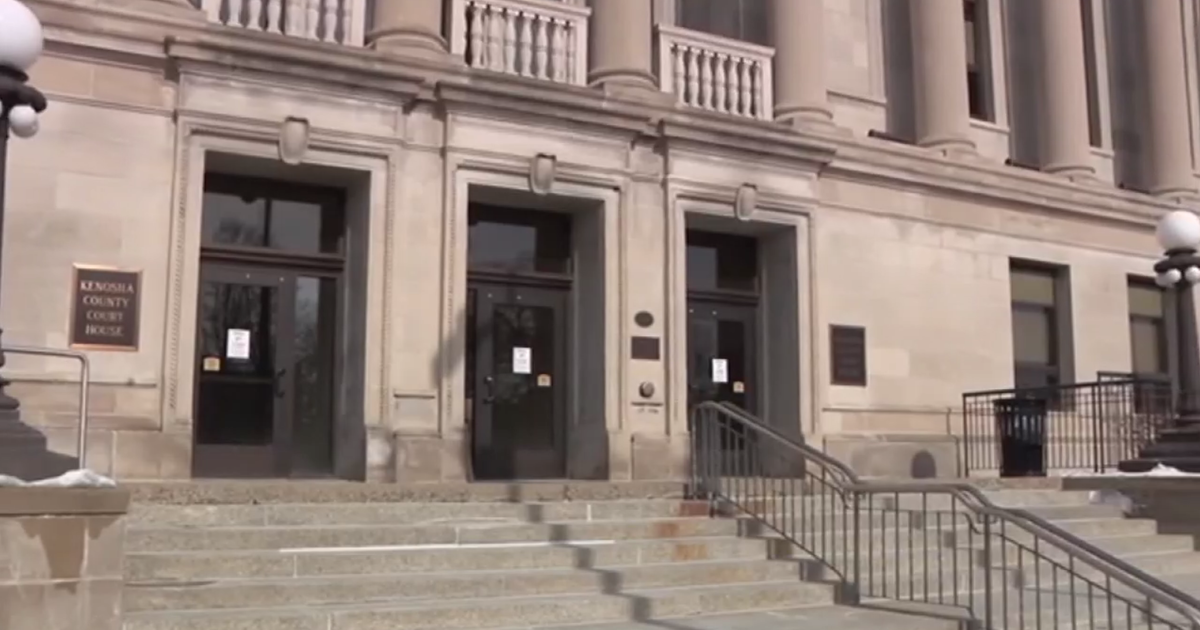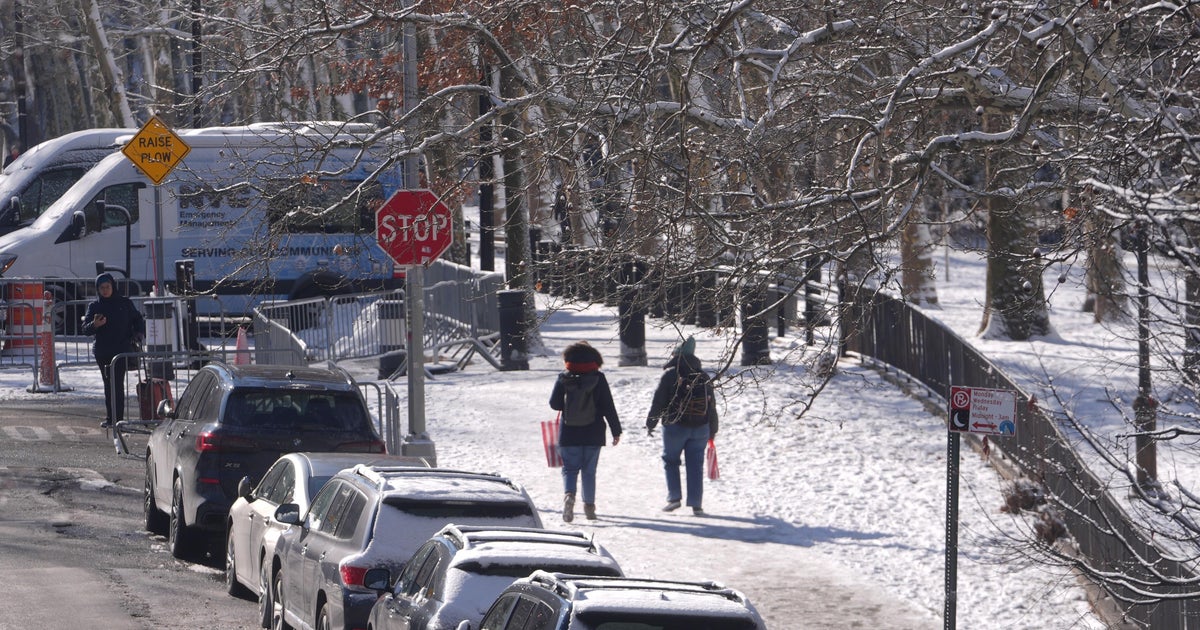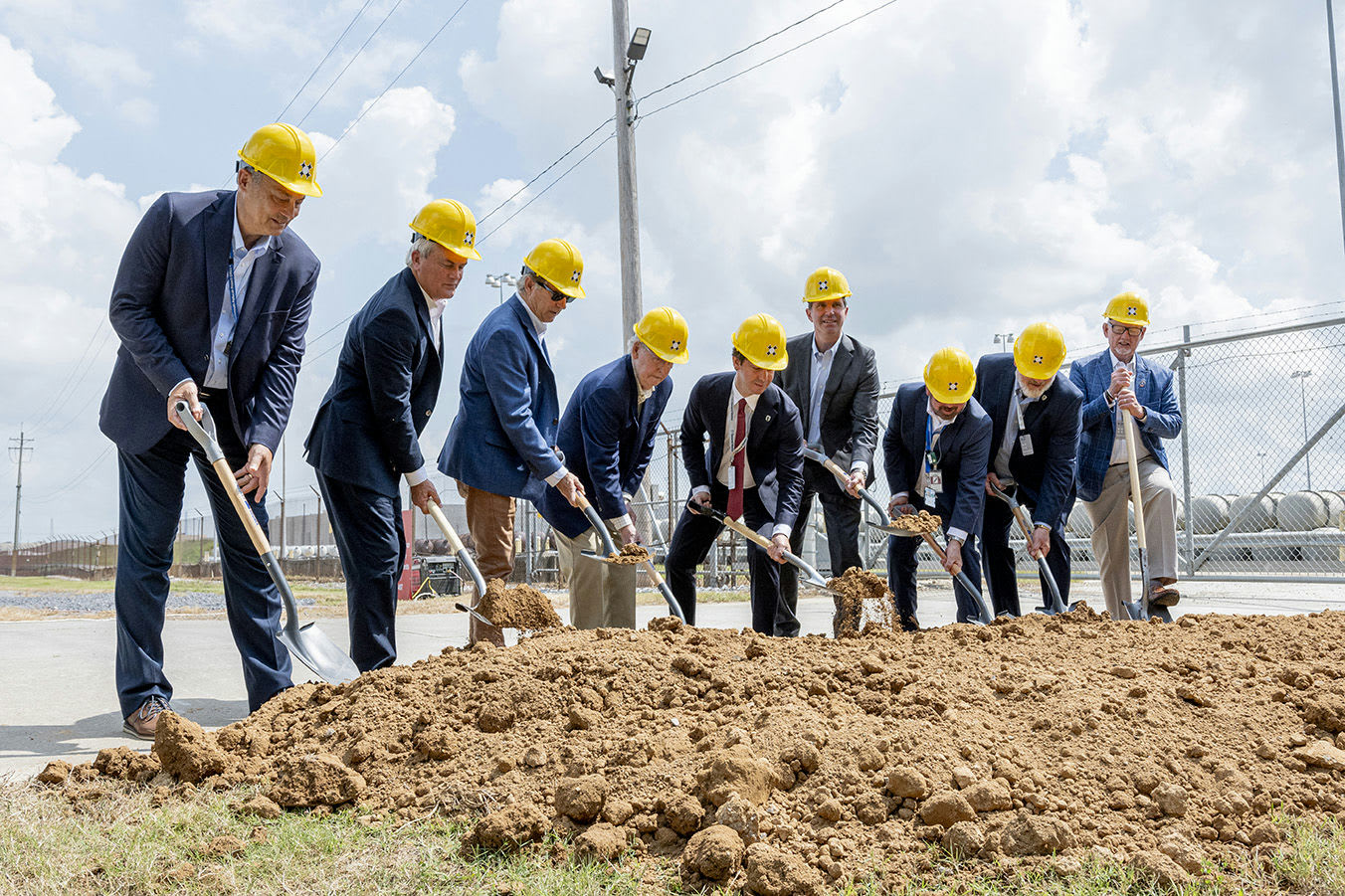Ukraine invasion, U.S.-led sanctions on Russia raise new questions about space station operations
Severe U.S. and allied economic sanctions announced Thursday in response to Russia's invasion of Ukraine will "degrade their aerospace industry, including their space program," President Biden said during a White House news conference. The comments raised fresh questions about the ongoing operation of the International Space Station.
Continuously staffed since 2000 by rotating crews of astronauts and cosmonauts, the space station is a hugely expensive, complex and extraordinarily successful example of superpower cooperation that dates back to the end of the Cold War, an extension of the 1970s-era détente that culminated in the historic Apollo-Soyuz Test Project.
The relationship has been rocky at times, but both sides have helped the other throughout and neither can operate the space station on its own. But Russia's invasion of Ukraine, threatening rhetoric from Russian President Vladimir Putin and severe sanctions announced by President Biden are the most significant challenges to the project yet.
Biden said Thursday "we estimate that we'll cut off more than half of Russia's high tech imports. And we'll strike a blow to their ability to continue to modernize their military."
"It will degrade their aerospace industry, including their space program," he went on. "It will hurt their ability to build ships reducing their ability to compete economically. And it will be a major hit to Putin's long term strategic ambitions."
A White House fact sheet providing details about the sanctions did not specifically mention space, but said the United States will impose "Russia-wide restrictions on sensitive U.S. technologies produced in foreign countries using U.S.-origin software, technology, or equipment."
"This includes Russia-wide restrictions on semiconductors, telecommunication, encryption security, lasers, sensors, navigation, avionics and maritime technologies. These severe and sustained controls will cut off Russia's access to cutting edge technology."
NASA said in a statement late Thursday that the agency is continuing to work "with all our international partners, including the State Space Corporation Roscosmos, for the ongoing safe operations of the International Space Station."
"The new export control measures will continue to allow U.S.-Russia civil space cooperation," the statement said. "No changes are planned to the agency's support for ongoing in orbit and ground station operations."
Earlier, Roscomos Director Dmitry Rogozin fired off a string of tweets directing sarcasm and anger at Biden and the West. He pointed out that Russian thrusters provide the power to boost the station's altitude to counteract atmospheric drag and to move the lab out of the way when threatened by space debris.
He even got in a dig against SpaceX founder Elon Musk for launching thousands of Starlink internet satellites that he said have "polluted" low-Earth orbit.
"Maybe President Biden is off topic, so explain to him that the correction of the station's orbit, its avoidance of dangerous rendezvous with space garbage, with which your talented businessmen have polluted the near-Earth orbit, is produced exclusively by the engines of the Russian Progress MS cargo ships," a translation of his tweet said.
He made no mention of a recent Russian anti-satellite weapons test that created a cloud of potentially dangerous space debris.
In any case, Russian engines also will provide the thrust needed to safely drive the space station back into the atmosphere at the end of its life, targeting re-entry over an unpopulated stretch of ocean to ensure no debris falls on populated areas.
"If you block cooperation with us, who will save the ISS from an uncontrolled deorbit and fall into the United States or Europe?" he tweeted in Russian, according to Google Translate. "There is also the option of dropping a 500-ton structure to India and China. Do you want to threaten them with such a prospect?
"The ISS does not fly over Russia, so all the risks are yours. Are you ready for them? Gentlemen, when planning sanctions, check those who generate them for illness Alzheimer's just in case. To prevent your sanctions from falling on your head. And not only in a figurative sense."
U.S.-Russian cooperation was critical to the space station's construction and ongoing operation. Russia stepped in and launched a steady stream of astronauts to the lab when the space shuttle was grounded after the 2003 Columbia disaster and then provided transportation for American and partner-agency astronauts after the shuttle program ended in 2011.
The ferry service has been beneficial — and lucrative — to Roscosmos, which charged up to $90 million per seat, taking in $4 billion since 2006.
As Rogozin said, Russia provides the propellant and thrusters needed to periodically reboost the station, a critical capability NASA cannot currently replace. Maneuvering is provided by thrusters built into the Russian Zarya and Zvezda modules and aboard visiting Progress supply ships.
A Northrop Grumman Cygnus cargo ship that arrived earlier this week is the first U.S. vehicle after the space shuttle to be capable of reboost, but it cannot on its own replace the Russian capability.
For its part, NASA provides the lion's share of the space station's solar power and uses four massive gyroscopes to re-orient the lab as required without the need for thrusters. NASA also provides wireless communications, computer services and spacewalk equipment routinely used by cosmonauts.
But NASA astronauts are not trained to operate Russian systems and vice versa for the cosmonauts. Neither side can safely operate the lab on its own.
Thanks to SpaceX Dragon capsules and soon-to-fly Boeing Starliners, NASA is no longer solely reliant on Russia's Soyuz for crew transportation to and from the ISS. Crew Dragons have carried four NASA-sponsored crews to the station to date with a commercial visit planned for early April and another NASA crew launching April 15.
Russian and American crewmates
The current station crew is "mixed," with 2 Russians and an American — Anton Shkaplerov, Pyotr Dubrov and Mark Vande Hei — carried up on a Soyuz, 3 Americans and a German launched aboard a Crew Dragon: Raja Chari, Thomas Marshburn, Kayla Barron and European Space Agency astronaut Matthias Maurer.
Both sides currently are negotiating plans to continue launching astronauts aboard Soyuz and cosmonauts aboard Crew Dragons to ensure both agencies have personnel aboard to operate critical systems even if a contingency forced one ferry ship — and its crew — to unexpectedly depart.
Two NASA astronauts recently completed Soyuz training in Star City near Moscow and one is expected to launch aboard an upcoming Soyuz. Likewise, a cosmonaut is training for an initial flight aboard a SpaceX Crew Dragon. Both missions are scheduled for launches in September.
But a detailed agreement has not been finalized and how the negotiations might fare given the current crisis is not yet known. In the meantime, hatches between the US and Russian segments of the ISS remain open, a symbolic reminder of the cooperation it took to assemble and operate the most complex spacecraft ever built.
"I really hope things do go well," Vande Hei said of U.S.-Russian relations during a January interview with CBS News. "I definitely think that the space station and our cooperation with the Russians on the space station in particular, are a great sign of how successful we can be when we get to know each other and to do things that are cooperative, rather than find points of conflict."
Editor's note: This story has been updated to correct the year the shuttle program ended.
